Bi-Directional Hypertext Links in Fibery
TLDR
Starting from today, when you mention an entity in Fibery, a back-reference appears on its page:
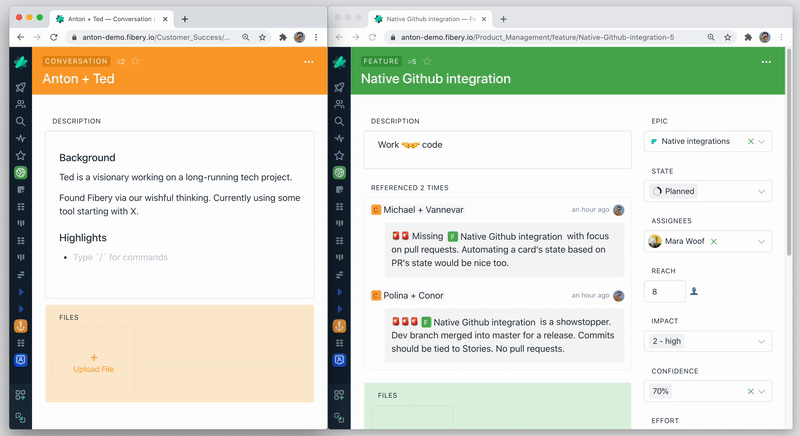
Take smart notes during a conversation — and help to prioritize and design a feature
🎤 Mic dropped (carefully, without affecting our burn rate).
The unexpected connections
Here at Fibery, we aim to augment organizational intelligence by connecting teams and processes. In Fibery, you create a knowledge network that naturally represents the way your organization works:
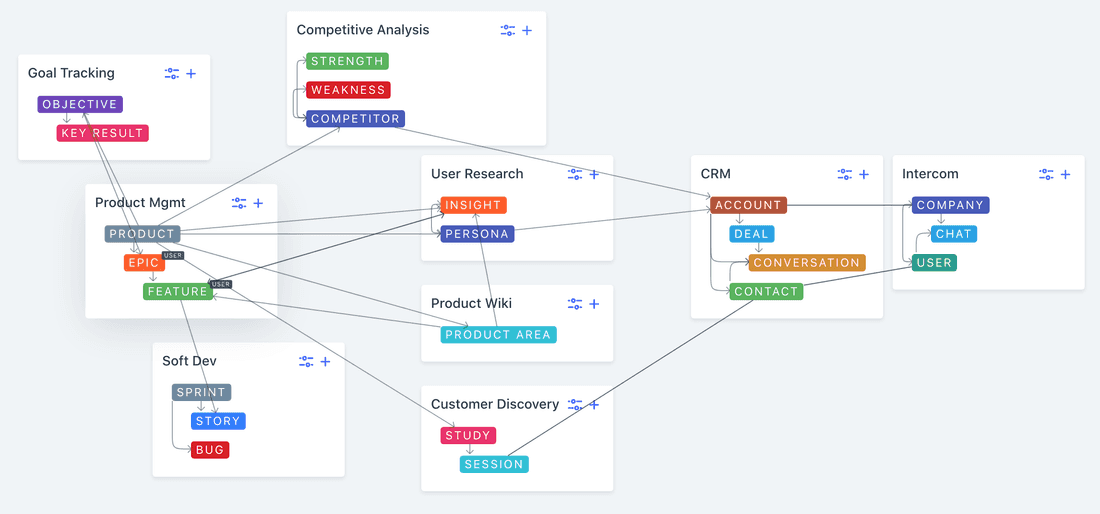
These links work great when you expect a connection:
- An Objective is always set for a particular Product
- A Feature usually consists of several User Stories
- An Insight is always relevant to one or several Product Areas
However, often you can’t predict how two pieces of knowledge relate to each other:
- A customer requests a Feature during a Conversation
- A respondent mentions a Competitor’s weakness during an Interview
- An engineer notes that a technical solution of a Story affects another Story
The best you can do is to put a link to a relevant entity — or, slightly better, mention it:

But, since the web hasn’t been designed by Ted Nelson, the link only works one way. If two different teams are responsible for the Stories above, the trouble is on the way:

Two-way links for collaborative networked thought
Our solution is simple: when you mention an entity, a back-reference appears on its page. This makes knowledge discoverable:
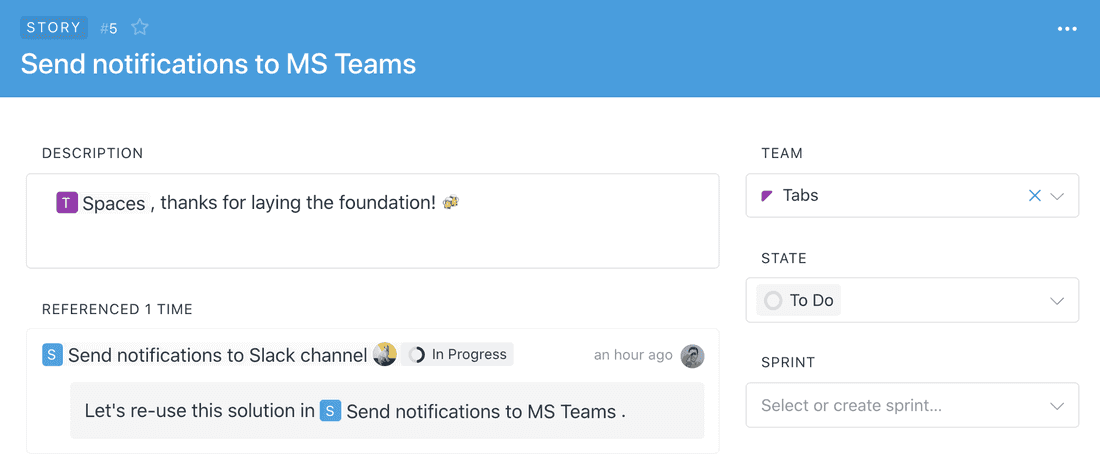
The idea has been around since at least 1960s and we are not the first millenials to rediscover it. However, all these new tools are for individuals only.
Fibery seems to be the first truly collaborative tool to introduce generic back-references 💪
Since we use Fibery to build Fibery, we’ve had a privilege to use bi-directional links for a couple of weeks. Our most common use case is connecting feedback with feature ideas:
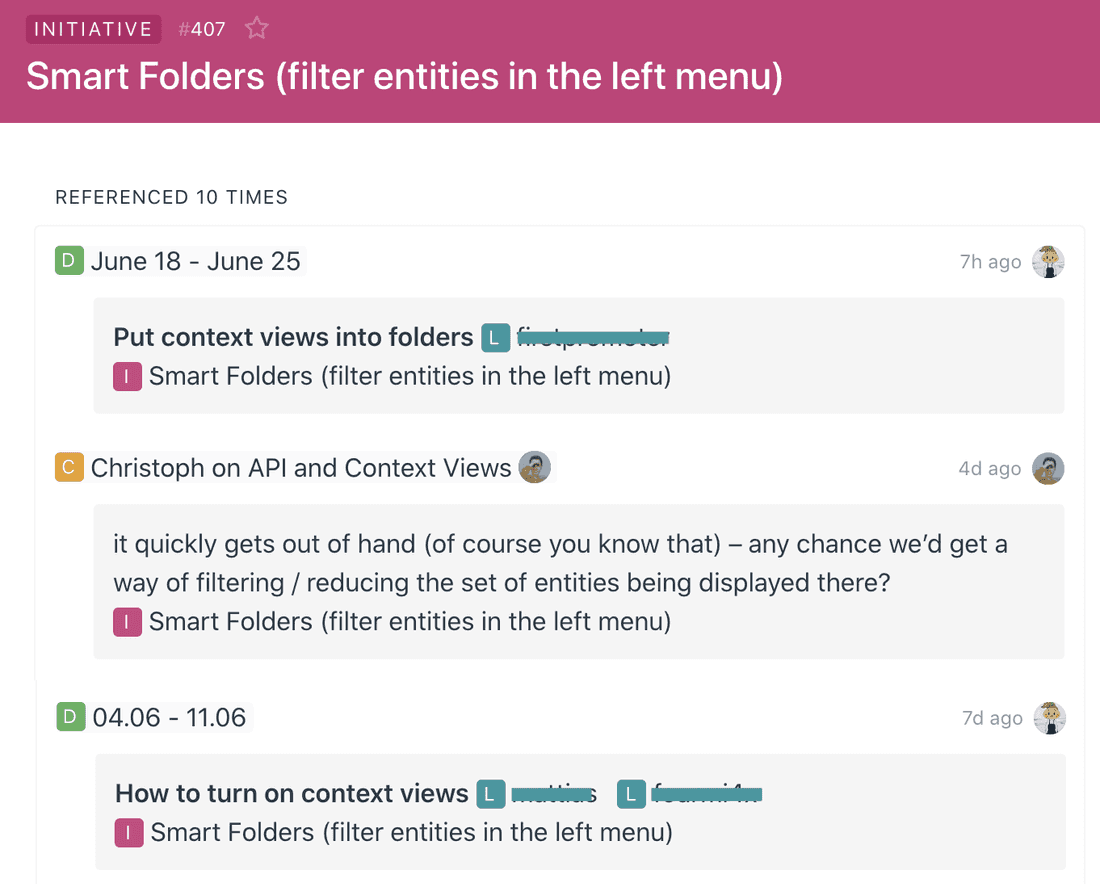
Ihar has come up with the idea of Smart Folders. He hasn’t been able to join Anton and Polina for customer calls. But, thanks to the back-references, Ihar knows how common the problem is and what the particular use cases are. Before starting the design, he’ll contact these particular users for deeper interviews.
With back-references, you don’t have to be a part of the team to contribute.
You can help another person to come up with a great idea just by mentioning a relevant entity. In a larger organization, you might even not know each other. Isn’t it fascinating?
Here is another scenario from our team— competitive analysis:
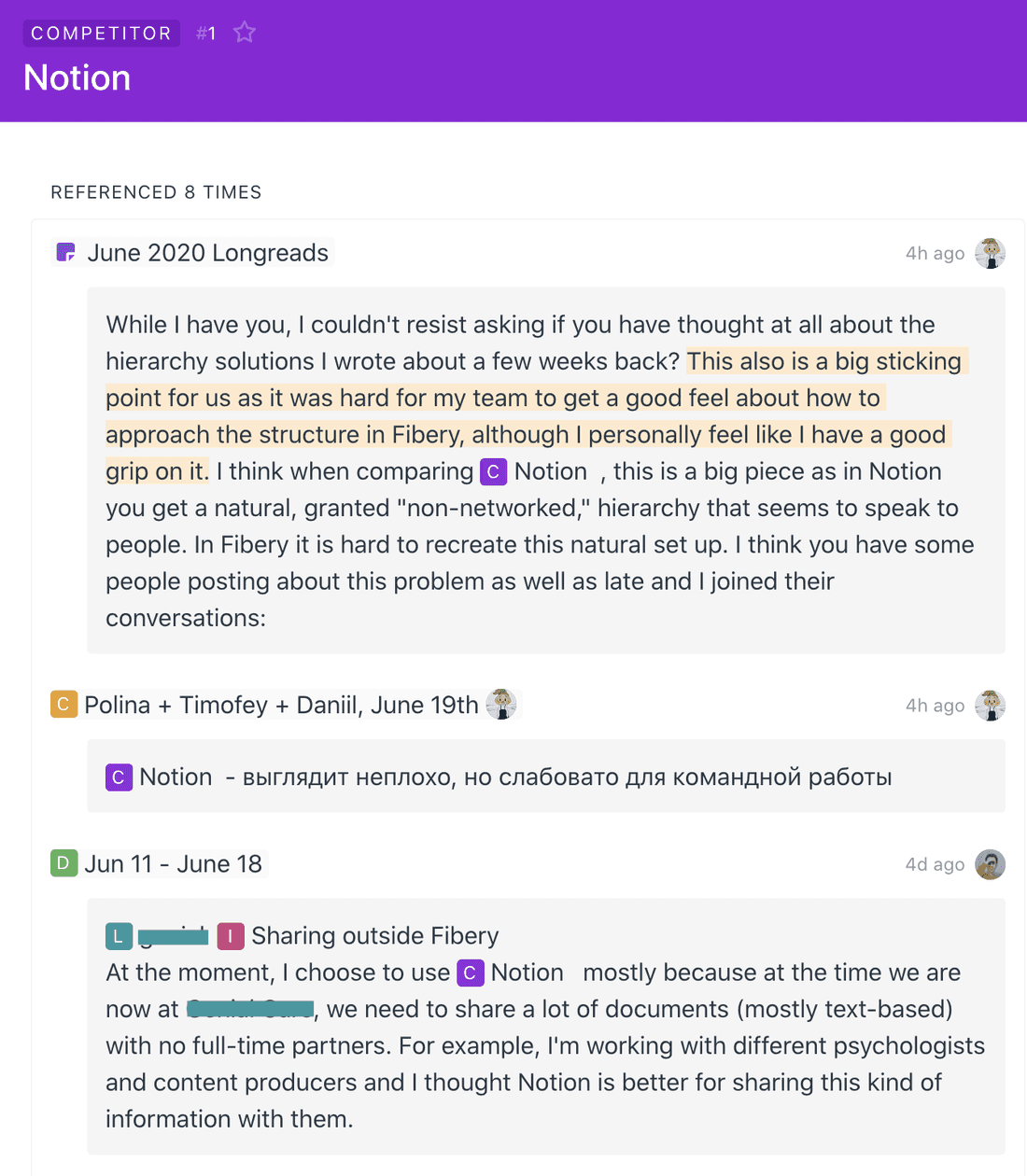
We collect what our users and leads say about our competitors. This helps us to guide product strategy, figure out positioning, and launch marketing campaigns.
To make it work, we are forming a new habit: typing #Notion instead of Notion.
We haven’t explored this fully yet… but since Reference is a first-class citizen in Fibery you could calculate any crazy formula. For example, when prioritizing a Feature we could count the number of Conversations it has been mentioned in lately:
References.Filter(FromEntityType.Name = "Conversation" and [Creation Date] >= Today() - Days(90)).Count() 😱What’s next?
We are super-duper curious to hear your scenarios for back-references. Your feedback is invaluable since bi-directional linking is a largely unexplored territory.
Hopefully, we won’t be interrupted by a person from Porlock, and today’s release will just be a humble start. We are already working on the next type of bi-directional links, so follow our blog for the updates ;)
Psst... Wanna try Fibery? 👀
Infinitely flexible product discovery & development platform.


